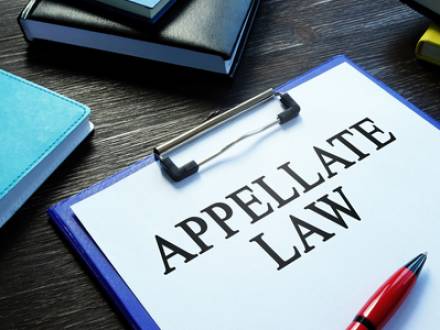Texas Convictions After Rivers v. Guerrero: What You Must Know
 The Supreme Court of the United States issued a unanimous decision in Rivers v. Guerrero on June 12, 2025. This decision clarified when a federal habeas corpus petition under the Antiterrorism and Effective Death Penalty Act of 1996 becomes a second or successive application under 28 U.S.C. Section 2244(b). This means that once a district court enters judgment on a first-filed Section 2254 petition, any later filing qualifies as a second or successive petition, regardless of whether an appeal of the first is pending.
The Supreme Court of the United States issued a unanimous decision in Rivers v. Guerrero on June 12, 2025. This decision clarified when a federal habeas corpus petition under the Antiterrorism and Effective Death Penalty Act of 1996 becomes a second or successive application under 28 U.S.C. Section 2244(b). This means that once a district court enters judgment on a first-filed Section 2254 petition, any later filing qualifies as a second or successive petition, regardless of whether an appeal of the first is pending.
This decision is significant in the state of Texas when a state-convicted petitioner is seeking federal collateral relief. Under the new decision, the filing of new claims via a separate petition mid-appeal may not be possible, significantly raising the stakes for first filings in the Fifth Circuit. Because appeals are so limited, yet so vitally important, you must have a highly experienced Texas appeals lawyer as your legal advocate.
The Federal Habeas Framework for State Convictions
Texas Section 2254 is a federal statute that allows a person in custody under a state court judgment to challenge his or her conviction or sentence in federal court on the grounds that it violates the U.S. Constitution or federal laws. Section 2254, also known as the federal habeas corpus statute for state prisoners, requires state-level remedies to be exhausted before a federal petition can be considered.
Section 2254 does not apply to state laws and differs from a 2255 petition, which is used to challenge federal convictions. A 2254 petition does not challenge the factual correctness of a state court’s decision, but rather the constitutionality of the process. The goal of Section 2254 is to obtain relief in the form of having a sentence corrected or a state-court judgment vacated.
About Rivers v. Guerrero
Defendant Rivers was convicted in a Texas state court and filed his first federal Section 2254 petition in August 2017, which was denied in September 2018. While an appeal of the first petition was pending, Rivers obtained new, allegedly exculpatory evidence and filed a second Section 2254 petition as an amendment to the first, rather than a separate petition. The Supreme Court found that once a district court enters its judgment regarding a first-filed habeas petition, a second filing qualifies as a "second or successive application."
The existence of a final judgment on the first petition is the trigger for the successive-petition rules, not whether appeals remain pending. The reasoning in the decision was that permitting new filings while an appeal is pending undermines the goals of finality and efficiency. Further, district courts lack jurisdiction to consider second or successive petitions without appellate authorization.
What Are the Implications for Texas State-Convicted Petitioners?
For Texas petitioners in the Fifth Circuit, this means that the first Section 2254 filing is critically important. If any new claims or evidence are expected to surface, these issues must be raised in the first filing, before a judgment is issued. Rivers closed the loophole that allowed petitioners to file a new petition mid-appeal, while the first remained under review.
This requires gathering all evidence early on, identifying specific claims, avoiding any delays, and anticipating new evidence. The reason this is so important is that if a petitioner omits a claim in the first petition, filing a separate petition later will trigger the new rule or actual innocence exception, making it much more difficult to correct an oversight or mistake. If new facts emerge before judgment, a motion to amend should be considered. If new facts emerge after judgment, the successive petition rules must be navigated.
Contact a Dallas, TX Appeals Lawyer
Rivers significantly changes the landscape of federal relief for Texas state convictions, so the first Section 2254 must be treated as a crucial opportunity. A highly skilled Texas habeas corpus attorney from Pullan & Young can ensure your first petition is 100 percent ready, plan for amendments, and preserve your options. Attorney Pullan is a former Assistant District Attorney, and Attorney Young is a former prosecutor, bringing additional benefits to each client. Call 936-647-1540 to schedule your free consultation.







